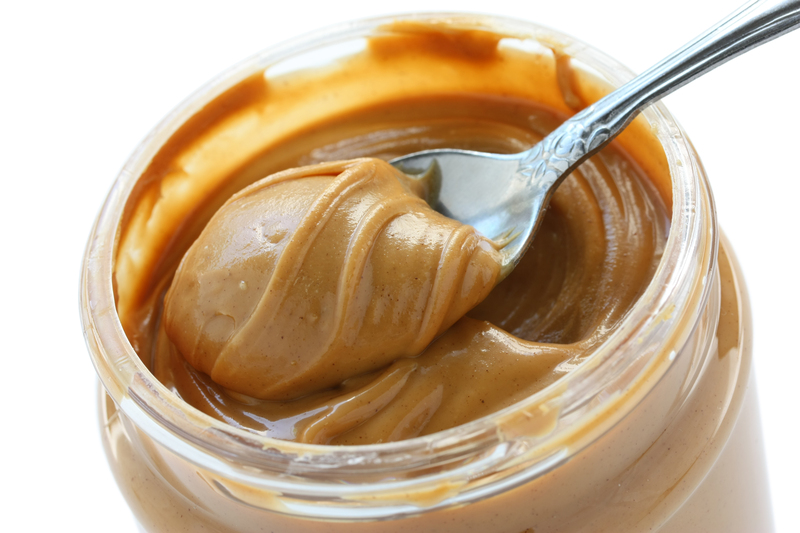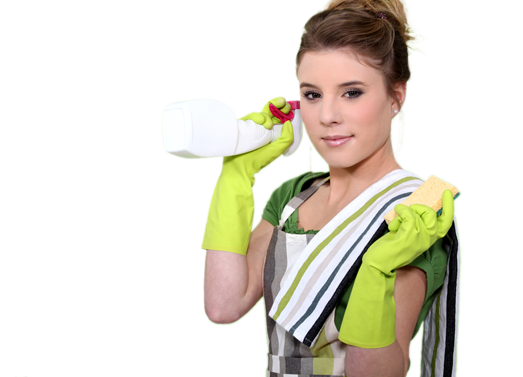Navigate Your Move-Out: End of Tenancy Cleaning Tips for Tenants
Posted on 28/06/2025
Navigate Your Move-Out: End of Tenancy Cleaning Tips for Tenants
Preparing to move out of your rented property? Whether it's your first time or you're a seasoned tenant, end of tenancy cleaning can seem overwhelming. This comprehensive guide will make your move-out process smoother and help you retrieve your full deposit.

Why Is End of Tenancy Cleaning So Important?
For most tenants, end of tenancy cleaning may feel like a burdensome chore. However, it's a crucial part of the moving process. Ensuring your property is in top-notch condition isn't just about courtesy--it's often a requirement in your lease contract. Here's why a thorough move-out clean matters:
- Deposit Recovery: Most landlords and letting agents require professional standards for cleaning. Insufficient cleaning is a leading cause of deposit deductions.
- Legal Obligations: Some agreements specify the cleaning requirements tenants must meet before leaving.
- Positive References: Leaving the property immaculate increases the chances of receiving a good reference for future rentals.
- Relationship with Landlord: Exiting with the property in excellent condition helps maintain a good relationship and assures a hassle-free move.
Understanding End of Tenancy Cleaning: What Does It Include?
Understanding what's expected from an end of tenancy clean is key to getting it right. Typically, landlords and agencies may provide a checklist, but in case they don't, here are standard areas tenants should focus on:
- Living Rooms and Bedrooms: Dusting surfaces, skirting boards, and fixtures, cleaning windows (inside), vacuuming and/or mopping floors, removing cobwebs, and ensuring all furniture is spotless.
- Kitchen: Deep cleaning appliances (oven, fridge, microwave), degreasing surfaces, emptying cupboards, cleaning sinks, taps, tiles, and floors.
- Bathrooms: Scrubbing toilets, baths, showers, sinks, tiles, mirrors, and any glass surfaces; disinfecting and ensuring limescale is removed.
- Hallways and Staircases: Dusting and cleaning banisters, skirting boards, doors, and flooring.
- Windows, Blinds, and Curtains: Washing windows internally, wiping sills and ledges, and ensuring curtains or blinds are free of dust.
- Carpets and Upholstery: Vacuuming thoroughly, spot treating stains, and optionally steam-cleaning if required by your agreement.
Tip: Always check your tenancy agreement for specific cleaning obligations related to your rental property.
Essential End of Lease Cleaning Supplies
Before you start your move-out cleaning, gather all necessary supplies. Being well-equipped will make the process much easier and efficient.
- All-purpose cleaner
- Glass and window cleaner
- Degreaser (for kitchen)
- Descaler (for bathroom limescale)
- Carpet stain remover
- Sponges, cloths, and microfiber towels
- Broom, mop, and bucket
- Vacuum cleaner (with attachments)
- Scrubbing brush
- Protective gloves
- Rubbish bags
Room-by-Room End of Tenancy Cleaning Guide
Here's a detailed breakdown to ensure every part of your rental is sparkling clean before you hand back the keys:
1. Kitchen
- Oven: Remove racks and soak them. Scrub the interior using a strong oven cleaner or a DIY mix (baking soda and vinegar works wonders!).
- Fridge and Freezer: Empty, defrost, clean all shelves and drawers, and leave the doors open to air out.
- Sink and Surfaces: Remove stains, disinfect, and polish taps and handles. Scrub backsplash and countertops thoroughly.
- Cabinets: Empty, wipe inside and outside, and remove any liner residue.
- Floor: Sweep, mop, and ensure corners are free from crumbs and stains.
- Extra Tip: Don't forget extractor fans and light fixtures!
2. Bathroom
- Toilet: Disinfect thoroughly, including the handle and behind the seat.
- Shower/Bathtub: Remove all limescale, mold, soap scum, and polish glass screens and tiles.
- Sinks and Mirrors: Scrub and polish to a sparkling finish.
- Extractor Fans: Clean dust and build-up to ensure proper airflow.
- Floors and Walls: Mop floors and wipe down walls around splash zones.
3. Living Room and Bedrooms
- Dust All Surfaces: Shelves, baseboards, window sills, door frames, and tops of wardrobes.
- Clean Windows: Wipe inside panes, sills, and tracks--remove any fingerprints or marks.
- Vacuum or Mop Floor: Move furniture to clean under and behind each piece.
- Upholstery and Mattresses: Vacuum and spot clean if needed.
- Tip: Use a lint roller for quick fixes on sofas and soft furnishings.
4. Hallways, Corridors & Staircases
- Wipe clean all light switches, handrails, and door handles.
- Clean any cobwebs from ceilings and corners.
- Sweep, vacuum, and mop floors.
Move-Out Cleaning Tips for the Best Results
- Start Early: Begin cleaning at least a week before your move, especially in rooms you use less frequently.
- Work Top to Bottom: Clean higher-up fixtures and let dust settle before tackling floors.
- Declutter First: Remove unwanted items and rubbish before you start cleaning to clear surfaces and spaces.
- Use Checklists: Keep track with a personalized end of tenancy cleaning checklist.
- Inspect as You Go: Try viewing each room as your landlord would--look for hidden spots, smudges, or forgotten corners.
- Document Your Work: Take photos of your cleaned property. This can prove useful during deposit disputes.
DIY vs Professional End of Tenancy Cleaning: Which is Better?
Many tenants wonder whether to conduct end of lease cleaning themselves or hire professionals. The right answer depends on several factors:
Benefits of DIY Cleaning
- Cost-effective: Saves money if you already own cleaning equipment.
- Personal Control: You focus on the areas that may need extra attention.
- Flexible Timing: Clean at your pace, around your moving schedule.
Benefits of Professional Cleaning
- Guaranteed Standards: Most reputable companies provide a satisfaction guarantee and will return for touch-ups if necessary.
- Specialised Equipment: Professionals use industrial-grade products and machines.
- Time-saving: Especially handy if you have a busy schedule or a larger property.
- Evidence: Receipts can be shown to your landlord as proof of service.
Tip: If the tenancy agreement requires "professional cleaning" or the property was professionally cleaned before your move-in, hiring a cleaning service might be the safest option to secure your deposit.
How to Pass Your Move-Out Inspection: Practical Advice
The move-out inspection is your final hurdle. Increase your chances of passing with these practical steps:
- Review the Inventory: Compare the property's current state with the move-in inventory, including photos and checklists from the start of your tenancy.
- Focus on Trouble Spots: Pay extra attention to high-use areas--kitchens, bathrooms, carpets, grout, internal windows, and appliances.
- Repair Minor Damage: Fill nail holes, touch up scuffed paint, and replace any burnt-out bulbs or lost fittings.
- Ventilate the Property: Air out the rooms to remove residual odors from cleaning chemicals or everyday life.
- Invite Your Landlord/Agent for a Preview: Consider arranging a preliminary inspection to catch anything you might have missed.
What Landlords Look For in an End of Lease Clean
Landlords and letting agents are looking for a property that closely matches the condition in which you moved in, minus normal wear and tear. The most common cleaning-related reasons tenants lose part of their deposit include:
- Dirt or grease in the kitchen
- Limescale and mold in the bathroom
- Unvacuumed carpets or dirty upholstery
- Dust on skirting boards, light switches, and window sills
- Stains on walls or floors
- Leftover rubbish or personal belongings
Being thorough with your end of tenancy cleaning can help you avoid these pitfalls.
Expert End of Tenancy Cleaning Tips and Tricks
- Remove Pet Odors: Use baking soda or specialist neutralizing sprays on carpets and soft furnishings.
- Tackle Limescale Early: Vinegar and lemon juice work wonders on taps and showerheads.
- Use Toothbrushes for Small Details: Get into the gaps in tiles, taps, and window tracks.
- Magic Erasers: Excellent for crayon marks, light scuffs, and wall stains.
- Steam Clean: If possible, steam-clean soft furnishings, mattresses, and drapes.
- Microwave Lemon: Place lemon slices in a bowl of water and run the microwave for two minutes to loosen grime and leave a fresh scent.
Common End of Lease Cleaning Mistakes to Avoid
- Ignoring Small Fixtures: Door handles, taps, light switches, outlet covers, and remote controls collect grime and must be wiped clean.
- Leaving Behind Personal Items: Double-check all cupboards, drawers, and storage spaces.
- Skipping Appliances: Clean the oven, fridge, dishwasher, and washing machine inside and out.
- Underestimating Time Required: Thorough end of tenancy cleaning takes longer than you think--plan accordingly!
- Neglecting Outside Areas: If you have a garden, garage, patio, or balcony - tidy these up as well.

Frequently Asked Questions About End of Tenancy Cleaning
Can my landlord force me to pay for professional cleaning?
While your landlord cannot force you to use a specific cleaning company, you are responsible for returning the property to the same standard as at the beginning of your tenancy. Check your agreement for requirements and provide cleaning receipts if needed.
Do I need to clean if the property will be renovated?
Yes. Unless the landlord has agreed otherwise in writing, you are obligated to return the property clean, regardless of planned renovations.
Should I provide proof of cleaning?
It's wise to take time-stamped photos of your cleaning and retain any receipts--these could be invaluable in case of disputes.
Final Thoughts: Your Key to a Stress-Free End of Tenancy Clean
End of tenancy cleaning doesn't need to be overwhelming. With the right approach, organization, and cleaning checklist, you can leave your property in excellent condition and look forward to receiving your full deposit back.
- Plan ahead and give yourself enough time.
- Gather quality cleaning supplies.
- Follow a detailed move-out cleaning guide.
- Pay attention to the requirements of your lease agreement.
- Decide whether to DIY or hire professionals -- both options have their benefits.
- Document your efforts to protect yourself against unfair deductions.
By thoroughly cleaning your rental property at the end of your tenancy, you're not just fulfilling an obligation--you're setting yourself up for a smooth transition to your next home. Happy moving!




